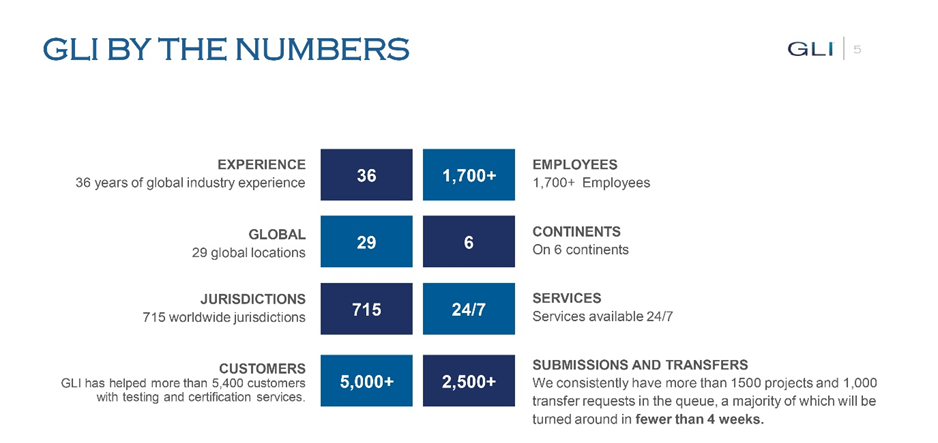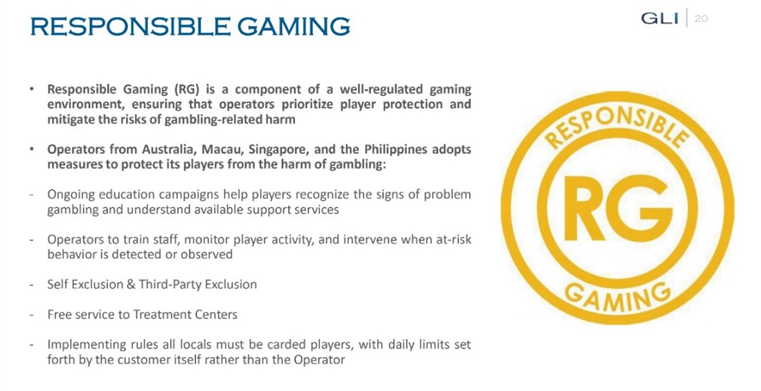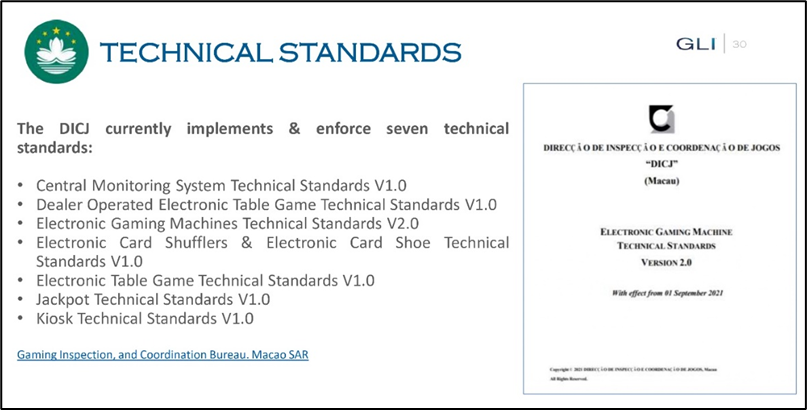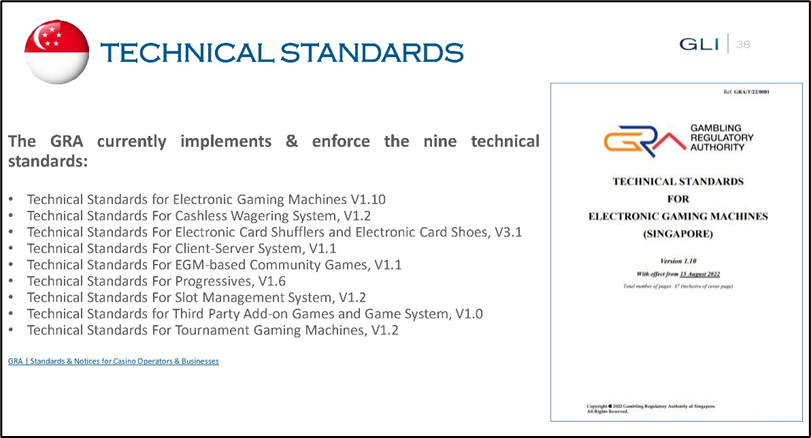Chaiwat Hanpitakpong
Patpimol Chaiyasan
1. Introduction
The prospect of establishing integrated resorts (IRs) and entertainment complexes in Thailand presents substantial economic potential, including increased government revenue, job creation, tourism expansion, and foreign direct investment. Nevertheless, the successful realization of these benefits hinges on the development of a comprehensive regulatory framework that effectively balances economic objectives with essential social safeguards.
This article draws upon international experiences—particularly from jurisdictions with well-established gaming regulatory systems—to identify key success factors for developing a secure and responsible wagering market. It examines global trends in regulatory design, outlines core policy foundations for responsible gaming, analyzes the mechanics of regulatory oversight, and considers how international best practices can be thoughtfully adapted to Thailand’s unique economic, cultural, and legal context.
In this regard, the contribution of Mr. Paulo Batalha Da Silva, Regulatory Development Manager, and Mr. Richard Howarth, Chief Business Officer, from Gaming Laboratories International, LLC (GLI), is of notable academic and practical relevance. Both experts participated in the Local Reach interview program on Tuesday, April 29, 2025, sharing insights grounded in their extensive experience in global regulatory development.
GLI is internationally recognized as a leading authority in gaming standards and regulatory compliance, having advised a wide range of jurisdictions on the design and implementation of secure, transparent, and socially responsible gaming environments. Their perspectives provide valuable input for Thailand as it considers the establishment of an integrated resort sector underpinned by effective governance and institutional integrity.

Mr. Paulo Batalha Da Silva, Mr. Richard Howarth,
Regulatory Development Manager from GLI Chief Business Officer from GLI
2. Global Trends and Regulatory Frameworks
Effective regulation is the cornerstone of a transparent, secure, and trustworthy wagering environment. It not only ensures the integrity of the gaming market but also enhances investor confidence and helps combat illegal activities such as money laundering and unregulated betting operations. A key element in establishing such an environment is the adoption of internationally recognized technical standards that serve as a foundation for regulatory compliance and market consistency.
GLI plays a leading role in this domain by providing independent technical advisory services and product certification based on globally accepted standards. These include benchmark frameworks such as GLI-33, which governs event wagering systems, and GLI-19, which addresses interactive gaming systems. These standards are widely used across advanced and emerging markets in Asia and beyond, offering jurisdictions a ready-made foundation upon which to build robust and responsible regulatory systems.

In their discussion during the Local Reach interview, Mr. Da Silva, and Mr. Howarth, shared their firsthand experience in supporting regulatory transitions and innovations across various regions. They emphasized that effective regulatory reform is not limited to drafting laws; rather, it requires a full operational framework involving technical standard adoption, change management planning, and iterative consultation with stakeholders.
Mr. Howarth also highlighted GLI’s role in guiding regulatory transitions in Australia, particularly in the move toward mandatory carded and cashless play—a development aimed at enhancing player protection and financial transparency. Similarly, GLI has worked extensively with emerging markets such as the United Arab Emirates and Brazil, helping them establish foundational regulatory regimes, while also supporting New Zealand as it prepares for a shift toward regulated online Gaming.
Mr. Da Silva further emphasized that regulatory stability is achieved through the consistent application of standards, proactive implementation mechanisms, and the early incorporation of responsible gaming policies. He noted that global success stories consistently involve multi-phase strategies, beginning with legislative design and extending to system certification, monitoring protocols, and public communication strategies.
Ultimately, their joint narrative reinforces the importance of learning from past implementations. Jurisdictions that have successfully adopted GLI standards and aligned their operations with international best practices have demonstrated improved market integrity, reduced illegal activity, and greater public trust in the regulated gaming sector. These insights are especially relevant for Thailand, which can benefit from GLI’s practical experience in guiding complex regulatory transformations tailored to local contexts.
3. Balancing Economic Potential and Social Responsibility
Integrated resorts (IRs) offer substantial economic benefits to a nation, encompassing increased government revenue, significant job creation, robust tourism expansion, and a surge in foreign direct investment. However, alongside these promising opportunities, IRs also inherently present potential risks, particularly concerning gambling addiction, money laundering, and broader impacts on local communities. Addressing these negative externalities is not merely a secondary concern but a paramount priority in every well-regulated gaming market globally. Responsible Gaming (RG) policies and measures, therefore, serve as essential safeguards, with a primary focus on comprehensive patron care and robust efforts to combat criminal elements.

Jurisdictions worldwide implement a diverse array of measures designed to protect both players and the wider community from the potential harms of gambling. A foundational aspect of these measures involves proactive player education and staff training.
As Mr. Da Silva emphasized, especially in nascent markets like Thailand, where the public may be less familiar with casino gaming, it is crucial to educate players about the long-term impacts of gambling and to equip casino staff to identify early signs of problem gambling behavior. Staff are trained to intervene appropriately when such behaviors are observed, offering guidance and suggesting breaks.
Furthermore, self-exclusion programs are widely adopted, allowing individuals who recognize they have a gambling problem to voluntarily ban themselves from entering casinos. Mr. Da Silva highlighted Macau’s self-exclusion list, where individuals can approach the regulator to be formally excluded from all casinos in the city after an interview process, with their names and photos distributed among properties to prevent re-entry.
An evolving measure, though not yet fully implemented everywhere, is third-party exclusion, which permits family members to request an individual’s exclusion if their gambling severely impacts the family, often involving social worker intervention and a more rigorous interview process to ensure proper assessment and potential referral to treatment centers.
A significant trend gaining momentum, particularly in Australia, is mandatory carded play. As Mr. Howarth explained, this system requires all local players to register as members and use a specific card to play. This enables players to set specific daily limits on their spending, implement timeouts, or define caps on how much they can wager, thereby preventing them from gambling away their savings. Such a system also greatly facilitates the tracking of player activity, which is crucial for both responsible gambling initiatives and anti-money laundering (AML) purposes. Mr. Howarth likened this to the necessity of having a driver’s license before operating a vehicle, emphasizing that it ensures players have undergone necessary safety training and are responsible enough to engage in wagering.
Another critical measure is cashless play, which involves removing large cash transactions from the casino floor. Mr. Howarth noted that while this shift can reduce certain responsible gambling issues, it also offers cost-saving benefits to operators by minimizing cash handling. However, he cautioned that system design must carefully balance the benefits of cashless play with the need to preserve a positive customer experience, ensuring that individuals who may not be accustomed to digital transactions or possess certain devices are still able to enjoy the entertainment aspect of an integrated resort.
Furthermore, the establishment of national self-exclusion registers, such as BetStop in Australia for online wagering, provides a crucial safety net. Mr. Howarth, who was instrumental in the development of BetStop, highlighted that this federal government-regulated system allows individuals to self-exclude from every online wagering platform in Australia. This mechanism offers a robust fallback, ensuring that even if other preventative measures fail, there is a comprehensive system to protect vulnerable individuals across the entire online gambling landscape. In some cases, with proper identification and evidence, third parties can also initiate an exclusion on behalf of another individual.
4. Mechanics of Regulation and Policy Adaptation
Ensuring comprehensive compliance and effective monitoring within the gaming sector necessitates the implementation of rigorous control measures. These include a strong emphasis on data-driven policy design, meticulous financial oversight, and robust inter-agency coordination. As Mr. Howarth explained, when properly executed, such a framework provides a high level of control. For instance, in Australia, government authorities like AUSTRAC are able to track financial transactions within the gaming sector that exceed certain thresholds, providing a crucial layer of financial oversight. The shift towards cashless play, often involving third-party finance providers and transactions through applications, further facilitates the tracking of funds and enhances transparency.
However, the design of gaming systems and regulatory frameworks must carefully balance security and oversight with the fundamental goal of providing entertainment. Mr. Howarth underscored that a casino’s primary purpose is entertainment, and regulations should be crafted to create a safe environment for this entertainment without unduly restricting the customer experience. This delicate balance was a key discussion point at forums like “Regulating the Game” in Sydney, Australia, where regulators, operators (such as The Star and Crown, who have undergone rigorous reforms), and financial intelligence units convene to navigate this challenge.
Engaging all relevant stakeholders—including regulators, operators, and financial intelligence units—is vital for designing effective and practical regulatory frameworks. Established gaming markets offer diverse and valuable examples of how these frameworks can be structured.
Learning from International Examples:
4.1 Macau
Mr. Da Silva provided a detailed overview of Macau’s regulatory evolution following the end of its casino monopoly in 1999. Faced with the entry of foreign operators accustomed to different practices, Macau’s regulator (DICJ) extensively utilized GLI standards as a foundational reference for developing its own comprehensive regulations and standards. Macau’s concession system, for example, includes a significant 40% tax on Gross Gaming Revenue (GGR), with a portion allocated for urban development. The jurisdiction also maintains strict rules on advertising and ensures that all gaming-related data remains within Macau to enhance regulatory control and data protection. Furthermore, the government aims to control the expansion of gaming by focusing on the quality of service rather than quantity, leading to the phasing out of satellite casinos.

4.2 Singapore
Similarly, Singapore has implemented stringent regulations for its two IRs, which include an entry levy for locals and a segmented gaming tax structure. Both Macau and Singapore base their detailed technical standards for gaming equipment, licensing, and inspection processes largely on GLI standards, ensuring high levels of integrity and compliance.

For Thailand, adapting international best practices means thoughtfully aligning them with the unique economic, cultural, and regulatory environment of the country. Mr. Howarth noted that Thailand, with its strong tourism appeal and hospitable culture, presents a promising environment for IRs. However, he critically emphasized the necessity of having robust checks and balances in place to address the societal implications of introducing gambling.
It is crucial that the regulatory component, including standards and oversight mechanisms, is well-defined and operationalized significantly in advance of any casino opening or operation. This proactive approach allows for the implementation of measures to track and certify operators and manufacturers, ensuring all products meet required standards. Thailand can greatly benefit from leveraging the experiences of other markets, particularly in areas such as concession models, taxation frameworks, the implementation of comprehensive responsible gaming programs, and the phased adoption of new technologies like mandatory carded and cashless play
5. Conclusion
The development of IRs in Thailand represents a transformative opportunity with the potential to generate substantial economic benefits, including increased revenue, job creation, tourism enhancement, and greater foreign investment. However, as demonstrated by global experience, realizing these benefits in a sustainable and socially responsible manner requires the establishment of a comprehensive regulatory framework rooted in international best practices and adapted to Thailand’s unique context.
This article has examined the critical components of such a framework, including the adoption of internationally recognized technical standards, the integration of robust responsible gaming policies, and the implementation of effective oversight mechanisms such as cashless systems, carded play, and cross-agency collaboration. Lessons drawn from leading jurisdictions—including Macau, Singapore, Australia, and New Zealand—highlight the importance of regulatory clarity, stakeholder engagement, and phased implementation strategies. These are not merely operational tools but foundational elements of a well-regulated, integrity-driven, and socially mindful wagering environment.
In particular, the insights provided by Mr. Paulo Batalha Da Silva, Regulatory Development Manager, and Mr. Richard Howarth, Chief Business Officer, of Gaming Laboratories International (GLI), have significantly enriched this discussion. Their participation in the Local Reach interview program on April 29, 2025, offered Thailand valuable perspectives drawn from extensive international experience in supporting regulatory reform and technical standardization across diverse markets. Their contributions underscore the vital role of independent technical bodies in guiding jurisdictions toward responsible and forward-looking gaming policy.
Thailand stands at a pivotal juncture. By prioritizing regulatory excellence and aligning economic ambition with social safeguards, the country has the opportunity to establish an integrated resort sector that is not only economically viable but also globally respected for its governance and accountability.
Above all, the success of this discussion and the valuable insights shared would not have been possible without the support of Mr. Mayoon Boonyarat, Deputy Editor-General, along with the dedicated teams from the Fiscal and Finance Journal, the Macroeconomic Policy Division, and the Knowledge Management (KM) team. Their efforts in coordinating and facilitating the Local Reach interview programme on April 29, 2025, were instrumental in making this meaningful exchange of international regulatory perspectives possible.


นายชัยวัฒน์ หาญพิทักษ์พงศ์
เศรษฐกรชำนาญการ
กองนโยบายเศรษฐกิจมหภาค
ผู้เขียน

นางสาวพัตรพิมล ไชยแสน
นิสิตฝึกงาน มหาวิทยาลัยเกษตรศาสตร์
ผู้เขียน
